SIGNALIS
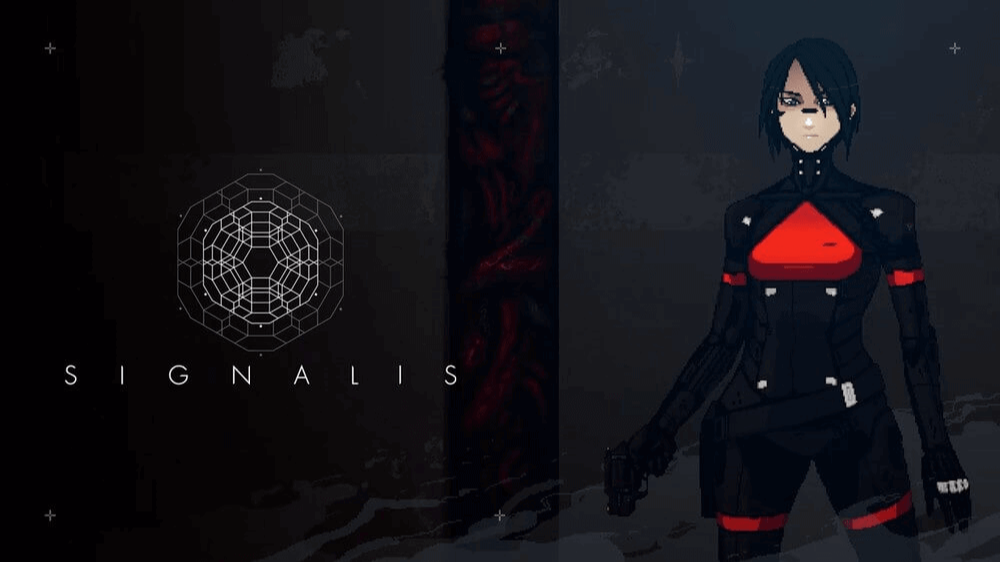
SIGNALIS - Existential shock guaranteed!
This text could have started with the basic fact that SIGNALIS is an old-school Survival-Horror, long-running indie game and blah, blah, blah *something about shared stylistic roots with the imperishable Silent Hill 2 and the undeservedly forgotten Silent Hill: Downpour*, but I will do otherwise, I will play the association game with you. Let's begin.
1 - [initialization test]
2- a = int (input( ‘ you are a replica? ’ ))
3 - if a = sure
4 - print ( ‘ access is allowed ’ ))
5 - else:
6 - print ( ‘ access is denied ’ ))
…
…

Does this picture look familiar to you? If so, what memories does it bring back to you?
1) No, I don't. Some kind of anime...
2) Something familiar. Something I remember, but I can't say for sure.
3) Yes, it's [deleted]. It makes me sad...
4) Yes, I remember the mental numbness after the final credits.
There is no correct answer. If option three at least indirectly echoes your thoughts - a hint of preliminary expectations from SIGNALIS you have already caught. But if you take the fourth option - I guess all these comparisons to Silent Hill, classic Resident Evil and Alone in the Dark will seem superficial to you after you get to know SIGNALIS, if you take the fourth option - you have all chances to understand SIGNALIS storyline by heart. And not everyone is able to understand it...
Titanic efforts always pay off
Rose-engine worked on SIGNALIS for eight years. In all those years, the original idea has hardly changed. And if the developers from Four Quarters described their Loop Hero as "a game where the protagonist walks around in circles", rose-engine described their SIGNALIS as "a dream about a dream", as mysterious as it may sound...
The plot of SIGNALIS at the same time refers to Lovecraftian horrors, Blade Runner and even to the anime Ergo Proxy, with which the game has much more in common than it may seem at first sight...
The storyline throws the player into a totalitarian-nationalistic world of the future, where high technology, production of humanoid replicants and intergalactic travel can surprisingly coexist with vintage radios and industrialization. For one such replicant - or rather - replicas, we will have to play. As in "Blade Runner", in the world of SIGNALIS the remnants of humanity exploit replicas, in our case on our fragile, metallic shoulders was laid a search mission, you do not expect gratitude.

Something strange is going on in the depths of the mine. You have to hand it to rose-engine, even with the naked eye you can see that the SIGNALIS scenario has been edited not once, not twice, but about ten times. The developers managed to reinterpret the hackneyed plot, giving an unusual twist to the horror that goes on throughout the game. No deadly zombie viruses developed by brilliant scientists; no portals to otherworldly worlds; no cursed cities. A rather banal beginning is wrapped up in a very non-trivial wrapper.
At the end we got something more than an attempt to repeat the oppressive atmosphere of Silent Hill, at the end we got a psychological horror, where they scare not so much with suspense and screamers as with a demonstration of deep insanity.
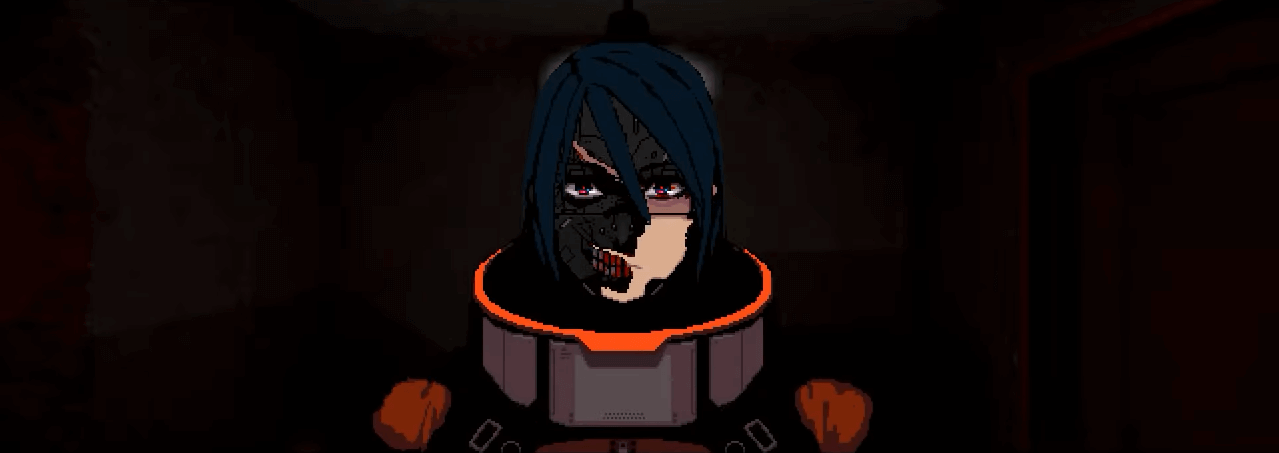
Strangely enough, but only in SIGNALIS text notes are interesting, in the same Resident Evil these notes were of no special interest, in the review subject notes are not only written in human language about complex things, but in direct synergy with gameplay. Without reading the notes, sooner or later you'll run into an impassable place, when as in a miserable piece of paper you might find the hint you need. The clues are to be commended, too - there are no vague, incomprehensible hints. It is worth noting that the author wrote the notes understanding that his universe and the player's universe are different. In addition, only from the notes you can learn the lore of SIGNALIS, understand its laws and get into the plot.
The Classic
But the plot of SIGNALIS is only the main motivator to survive all the conventions of old-school survival-horror, everything here is by the book: the lack of ammo - is; the initially open map, which you have to go around for another key - is; slow, but almost unkillable enemies - is; riddles in the lulls - is; saving rooms with a trunk - is.
But simply listing the components of the genre is not enough. What's interesting is how rose-engine has brought them to life. We'll start with the most successful, and end with the most mediocre.
Music. SIGNALIS ambient is worthy of an award. I haven't heard such piercing, enveloping music for a very long time. The keyboards evoke melancholy, the synths mesmerize, and the drum machine adds tension to the already tense action scenes. The music here is something cosmic. And why write? Feel it for yourself.
Puzzles... Puzzles are not so much about assembling the pieces of the whole, as they are about the player's wit and audio-visual perception. For example, here:
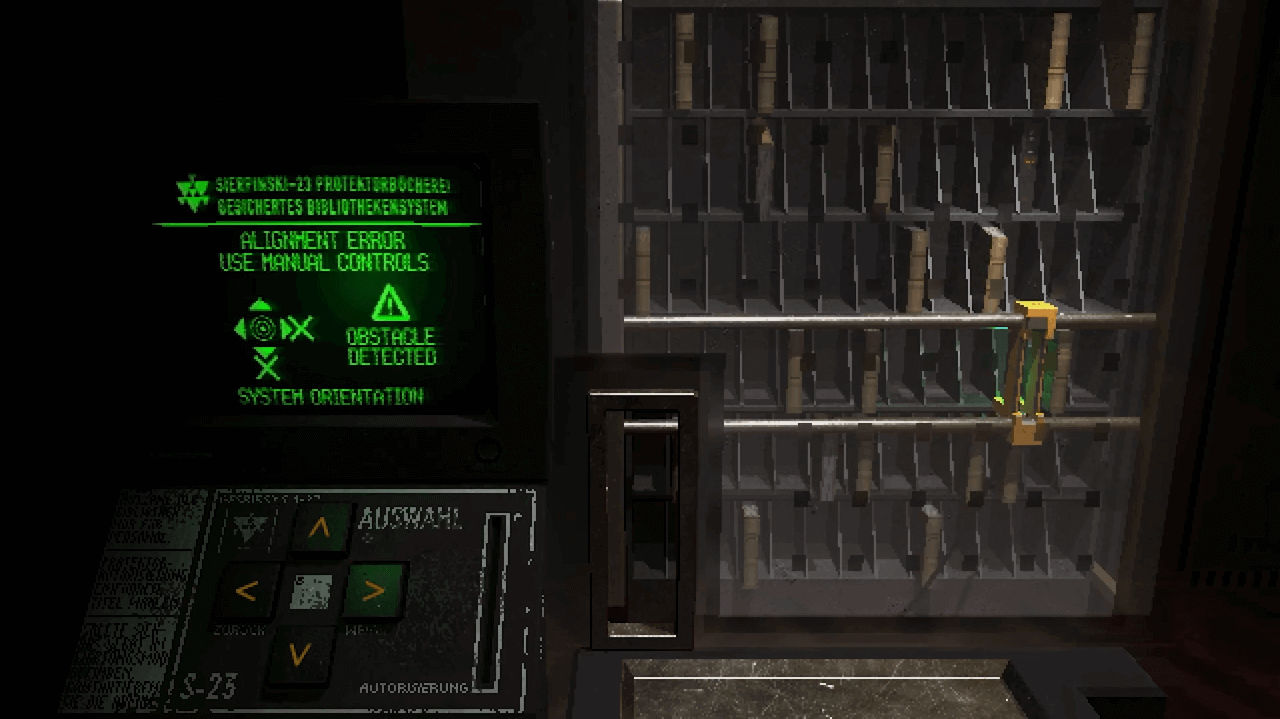
The puzzles aren't so complicated that you'll be stuck with them for hours, but they're not so simple that you can figure out what's what at a glance. Every time you have to dig in, look for the not-so-obvious clues with your eyes, and sometimes you have to poke at every pixel.
Resource Management. The balance of resource management was a bit of a miscalculation on rose-engine's part. SIGNALIS was originally supposed to be an old-school hardcore horror, but the limits of hardcore are not found well, the balance leans more to the side of the game than to the side of the player.
Inventory is strictly limited to 6 slots, of which 1 can occupy weapons, 2 - ammo for the main weapon, the third is a flashlight, 4 - first aid kit, and 5 and 6 - whatever you are lucky enough to take out. As you can see, exactly 66% of the inventory is taken by the basic necessities, it is impossible to survive without them. And this is taking into account that the quest items also take up space...
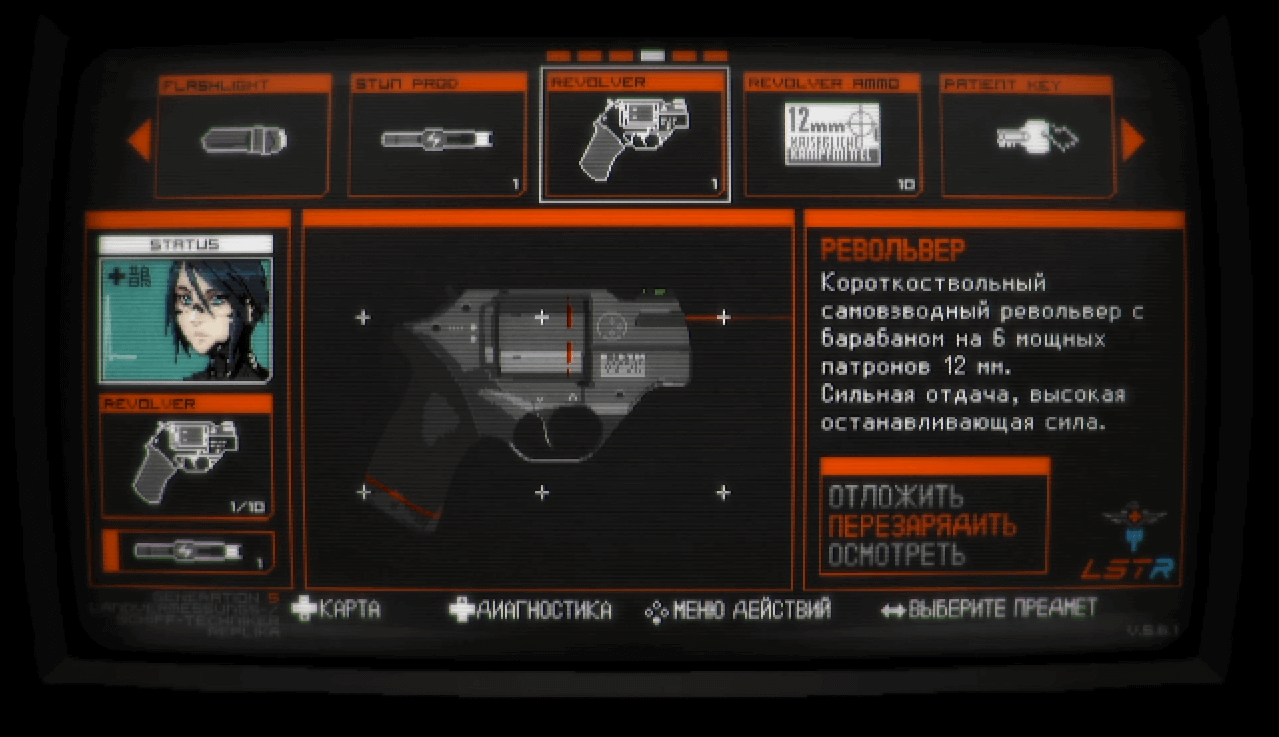
...and okay, if the developers would have given our Alster a pistol and a simple shotgun - no. There is a pistol, a shotgun, a submachine gun, and even a taser - a disposable melee weapon. However, it is not possible to use at least two weapons on a regular basis. This is not Resident Evil: Village, where all kinds of weapons fit in your pants, there are a couple of first-aid kits in your breast pocket, and a couple of mines and bombs somewhere in a leaky secret pocket. In SIGNALIS everything is strict: you enter the "escape room", save yourself, shuffle the necessary and unnecessary things, hide the weapon, where there is some ammo left, and take anything, as long as you have enough ammo to fight back.
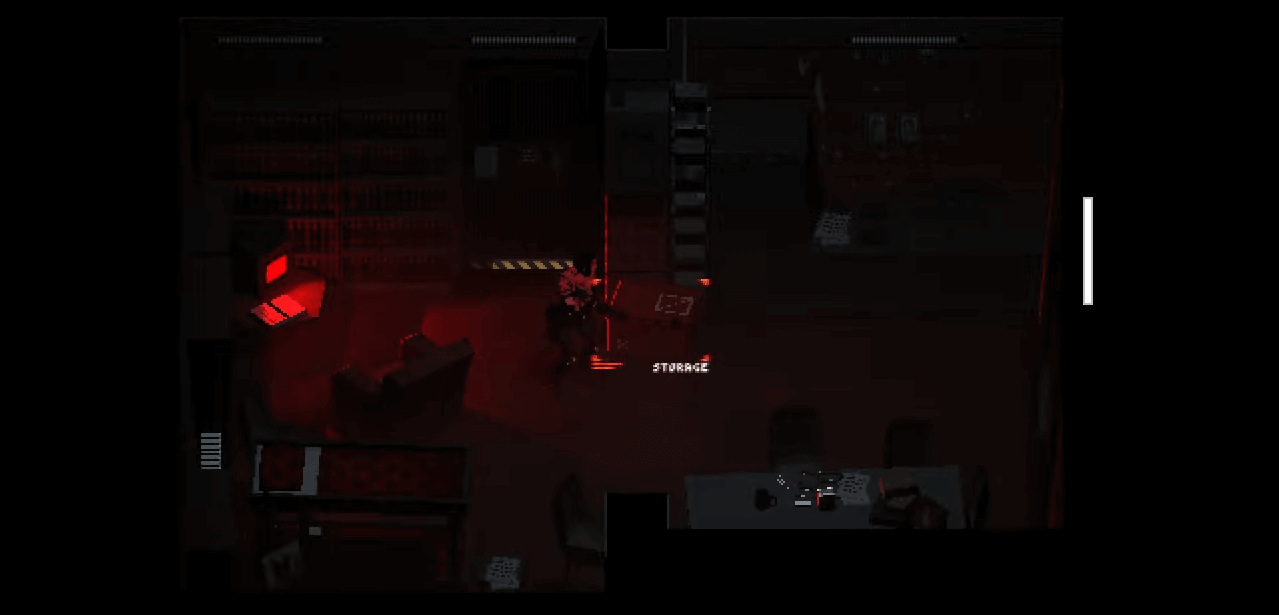
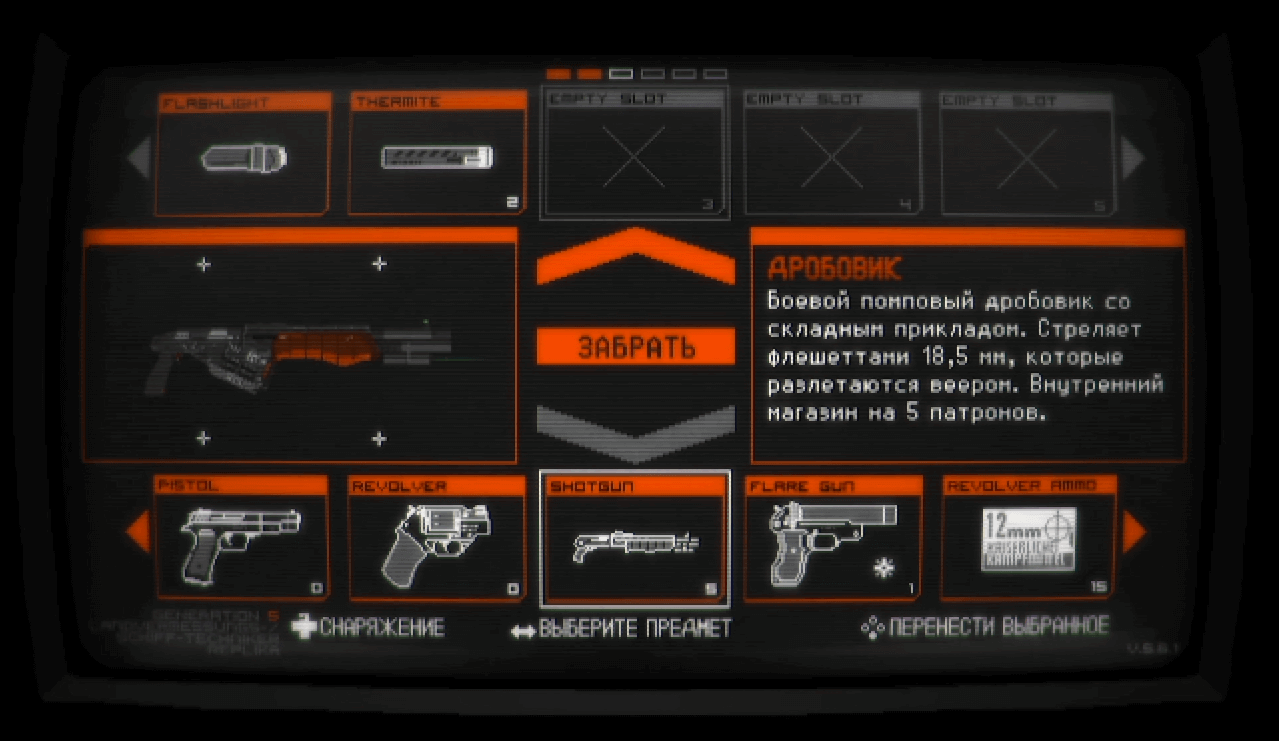
Very limited inventory is annoying at first, but it is especially annoying in the aftermath. Recall, in the old-school Resident Evil the player's inventory was limited so that the player didn't accumulate too many first-aid kits and ammo in one "run", which would later make the game easier and less interesting. However, when the player finds more and more weapons and items as the story progresses, those 6 slots become insufficient. It's one thing to carry a pistol in one slot and a handful of nine millimeter rounds for it, it's another to use a pistol against rank-and-file opponents and a shotgun against someone scarier. The difficulty curve dictates expanding your inventory by at least 2 slots, but SIGNALIS doesn't care about this fact: if you don't want to run without ammo, go back to the room with a chest after every skirmish. In the gameplay run to the "house" bring neither variety nor hardcore, and even praised resource management is not smelled here, just an artificial stretching of game time. In addition, the weapon is reloaded only in the inventory menu, as it was in the old Resident Evil, we can not call it a disadvantage, but the mechanics is for the lovers.
Shooting and combat system. The shooting is probably the weakest element of SIGNALIS. Yes, the weapon feels its weight, the animation of handling it is of high quality, but the aiming at enemies with gradually increasing accuracy is not something suitable for an old-school survival-horror. The overview camera in the game illuminates what is happening from above, sometimes - adds a third dimension, goes into isometric, and the transitions between the chapters are from the first person in full 3D.
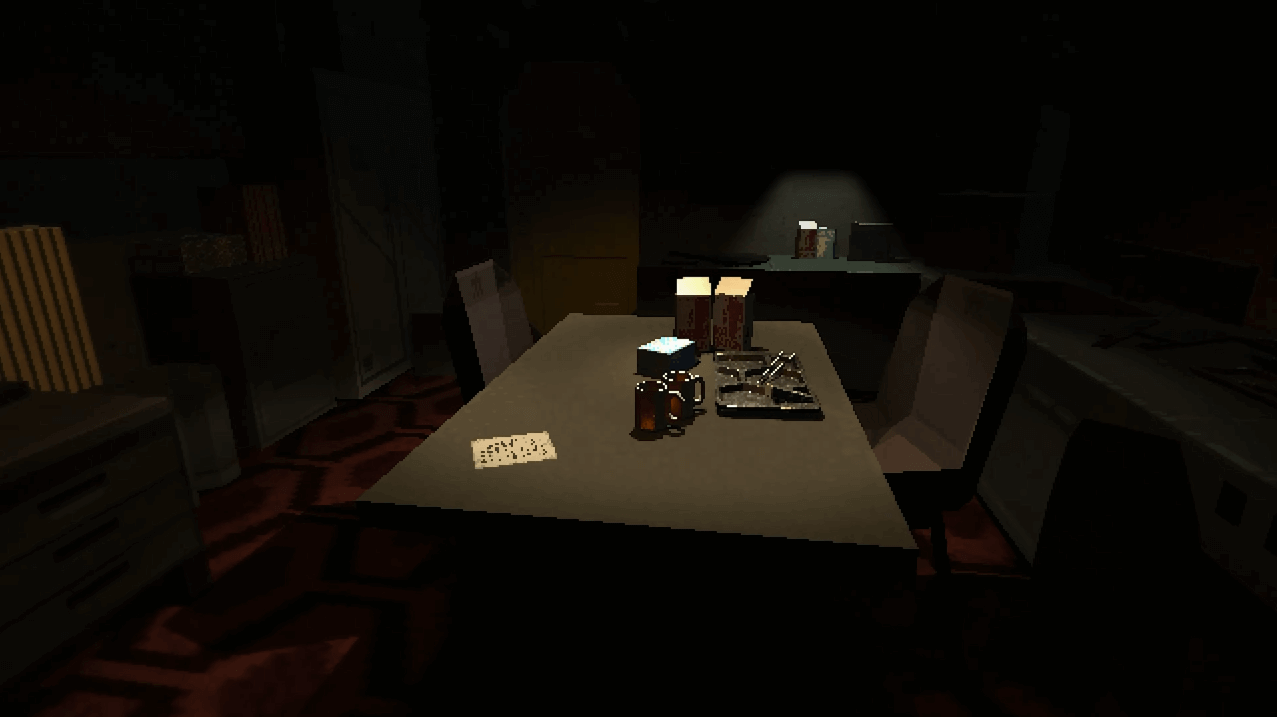
They tried to make the shooting universal, for nothing. Whether you hit or miss depends only on aiming time, but does sitting in the sights guarantee a hit? Then why do snipers aim for hours, but sometimes they miss? This is illogical, even if you consider the formalities of the game. Wouldn't it be better to give each gun a laser sight, and the laser line would shake depending on the health of the protagonist? But we have what we have.
Should I buy SIGNALIS?
If you don't dislike anime and old-school horror games, it's definitely worth your money. All eight years of development were spent not on the quantity of content, but on the quality - this is the rarest case in our time.
But don't expect the same feelings from the game that you once had while wandering in a foggy city, SIGNALIS is not so much about solitude in a cursed place, but about detachment from the world, from vanity and even from sanity.
